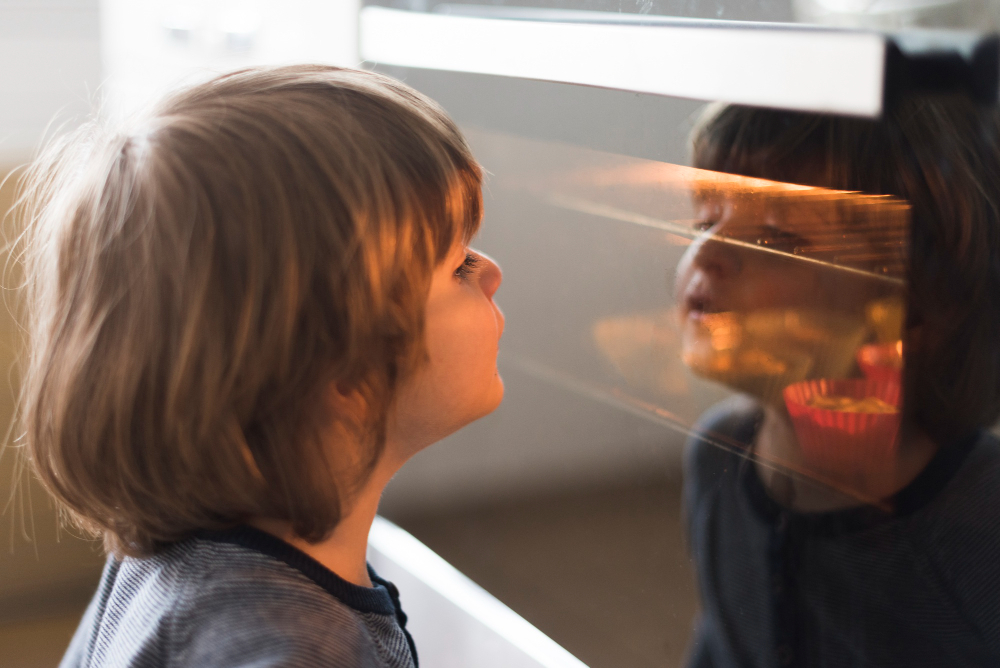When using your trusty oven, two questions might arise: Can you use an oven without a bulb? Can you use an oven without its bulb cover?
To use an oven, you’ll need a specialized light bulb. An oven-safe light bulb will be made.
Bulbs for appliances are different from conventional bulbs in that they are built to survive the high temperatures and pressures present within devices. As a result, they are more durable, with a thicker filament that can endure vibrations, and more likely to be shatterproof.
A single light bulb won’t work in every situation, just like a single piece of clothing won’t be appropriate for every situation. And just like you need to change your outfits once in a while, your lights need to get changed once in a time too.
Because of the high temperature, it is possible to use halogen or incandescent light bulbs in household ovens and rotisseries up to 260°C (500ºF). For reliable operation, halogen light bulbs are constructed using heat-resistant components, such as quartz glass, which can withstand oven temperatures.
Oven bulbs aren’t your typical light bulbs. Instead, appliance bulbs are the common name for the light bulbs found inside ovens and other appliances. Many appliances use these bulbs to handle the extreme conditions inside them.
The bulb should be compatible with the equipment it will be used in. Ensure this before purchasing. LED light bulbs for home appliances are becoming increasingly prevalent, although they are not suited for use in ovens. Make it evident on the packaging or online site which devices the bulbs are compatible with.
Do Ovens Use Special Light Bulbs?
While it may be enticing to use an ordinary bulb to replace an appliance-rated bulb that has stopped working, this is not the best option. This is not an option for some appliances, such as ovens and microwaves. You can, however, use a standard bulb in other devices like refrigerators and ranges, but it’s preferable not to.
While a standard light bulb is fine for things like your bedroom lamp or the overhead fan in your living room, it is in no way equipped to handle the super-hot interior of an oven. Vibration and temperature extremes can cause everyday bulbs to fail.
Special light bulbs’ functionalities and compatibility are now clearly labeled and rated to make shopping for them more manageable for you. Ensure that the bulbs you plan to use in any of your appliances are appropriate for the task.
If you are looking for a lightbulb for an appliance, there are some key differences. The lightbulb is built to resist and go through a lot more than the average one, for starters. Also, unlike an oven bulb, a typical halogen, incandescent, fluorescent, or LED bulb will not be subjected to severe heat.
As the temperature in an oven rises to 260°C (500ºF), the bulb is protected in a “special chamber” that isn’t heat-resistant, so it’s still subjected to the oven’s severe heat. To avoid shattering, an appliance bulb is built to endure high temperatures.
Can You Use Normal Lightbulb in Oven?
To use an oven, you’ll need a specialized light bulb. An oven-safe light bulb will be made. So this means that you cannot use a standard LED bulb to replace your exhausted oven light.
This bulb type is perfect for ovens since it can withstand high temperatures for an extended period and has thick glass to safeguard the filament and prevent it from shattering.
When it comes to appliances, switching to LEDs is the better choice virtually always because they are less complicated to install. An LED isn’t going to work in a gas or electric oven in this situation.
Many home appliances rely on light bulbs for illumination. Replace a burnt-out appliance light bulb with an ordinary incandescent light bulb of the same size you already have in your home instead of running to the store to get another.
Standard bulbs can be used if the appliance’s socket and wattage are compatible. This is true for refrigerators, cooking hoods, and lavatory exhaust fans. But it is not suggested to do so. A variety of appliances, such as microwaves and ovens, require special light bulbs.
Suppose you have anything with a comparable socket and a low enough wattage. Still, the bulb’s lifespan will be shortened due to the freezing temperatures, and the thinner glass could lead to breakage. A regular bulb may also be too large for your fridge or freezer, posing a more considerable risk of shattering or not fitting.
What Kind of Lightbulb Goes Above an Oven?
Although most range hoods include halogen lights, LED incandescent lamps can be used in their stead. In a range hood, you can use any one of these three types of bulbs.
Cooking in a well-ventilated kitchen requires a high-quality range hood. No matter how much smoke or steam comes from your pot when cooking, the range hood is there to filter and remove it.
A range hood’s twist-lock base is an unusual feature. However, fan vibration necessitates the need for these bases. In addition, the twist-lock base prevents the bulb from falling out of place. Choosing a suitable range of hood light bulbs is the subject of this essay.
Because appliance bulbs can endure high temperatures, they are distinct from standard bulbs. The bulb’s components are composed of more durable materials so that they may withstand high temperatures or low temperatures without breaking.
Appliance-rated bulbs, designed for use in high-temperature environments, have a life expectancy of 30,000 hours or more, compared to the 20,000 hours of standard incandescent bulbs. However, it’s vital to check the owner’s handbook before purchasing any light bulbs, as some appliances may not accept them.
Specific range hoods do not have a driver or transformer built-in. Halogen and LED bulbs are interchangeable in most circumstances since the driver is integrated into the lightbulb. Check with the supplier before making any changes to your kitchen range-hood lighting.

